Schizoaffective disorder is a severe mental condition that includes psychotic symptoms found in schizophrenia such as hallucination and delusions along with severe mood symptoms such as mania or depression.
Understanding Schizoaffective Disorder
Learn More About Schizoaffective Disorder
It is difficult to define this disorder since it is a combination of several conditions that may either be unique or interrelated depending on the individual. Those who are diagnosed with this disorder has repeated episodes of depressed or elevated mood either separately or mixed which may occur at the same time as perceptual distortions or alternate with them.
As schizophrenia has been theorized to be a thought disorder, the psychotic symptoms frequently affect cognitive functioning such as thinking, decision making, attending, concentrating, remembering and problem solving. The person may also experience auditory hallucinations, bizarre delusions, paranoia, disorganized speech and thought. Generally, while these symptoms are not always present, the individual has enough difficulty distinguishing what is real from what is not real that they do not function normally in social, occupational, educational or home related situations.
It is rare for this disorder to develop prior to the age of 13, though cases do exist. Most people who are diagnosed with this disorder develop it in early adulthood. Although this is an extremely serious disorder, newer medications for schizophrenia and mood disorders in addition to psycho-therapeutic techniques proven effective in helping with the consequences and effects of the disorder, have led to much more successful treatment options. In general, physicians prescribe medications to stabilize the extreme mood states and get the psychotic symptoms under control. While only one medication, the antipsychotic drug paliperidone (Invega) has been approved by the FDA for treating this condition there are a number of others used for similar conditions or conditions with shared symptomatology that are often successfully used to help those with this disorder re-establish a normal, happy life.
Statistics
Statistics of Schizoaffective Disorder
The lifetime prevalence rate for schizoaffective disorder has been estimated at .3 %. Higher rates of the disorder have been found in women compared to men which is largely believed due to the higher rates of depression in women than in men. Gender differences also appear to be related to the specifics of the disease. Rates are higher in men when there are a preponderance of psychotic symptoms and longer duration of the illness the rates while when there more mood symptoms and a shorter duration of illness the rates are higher in women.
Co-Occurring Disorders
Learn About Co-Occurring Disorders
Several disorders co-occur with schizoaffective disorder. These include:
- Substance abuse disorders
- Anxiety disorders
- Personality Disorders
- ADHD
- Antisocial Personality Disorder
- Obsessive Compulsive Disorder
- Post-Traumatic Stress Disorder
- Disinhibited Social Engagement Disorder
- Schizotypal Disorder
- Schizophrenoform Disorder
- Adjustment Disorders
Causes
Causes of Schizoaffective Disorder
Little is known about the causes of schizoaffective disorder. Some potential causes that have been hypothesized include:
Genetics – Those with first degree relatives who have schizophrenia or schizoaffective disorder are at higher risk than individuals without a similar family history. Overall, those with family histories of any type of psychotic or mood related disorder are more likely to develop the disorder compared to those with no such family history.
Brain Chemistry – Certain chemicals in the brain responsible for communication between neurons have been linked to this disorder. In particular dopamine and serotonin may help regulate mood and it has been suggested that when these neurotransmitters are out of balance it may contribute to the development of the disorder.
Prenatal Development – Some evidence suggests that exposure to toxins or viruses in the womb may contribute to the later development of this disorder. It is also possible birth complications may be related to the development of his disorder.
Signs and Symptoms
Signs and Symptoms of Schizoaffective Disorder
Symptoms of Schizoaffective disorder may include:
Psychological/Mood symptoms:
- Hallucinations, such as hearing voices
- Depression
- Euphoria
- Mania
- Irritability
- Anger outbursts
- Anxiety
- Flat, expressionless gaze
- Inability to cry or express joy
- Inappropriate laughter or crying
Cognitive symptoms:
- Bizarre thoughts or perceptions
- Paranoia
- Delusions
- Disorganized thinking
- Thoughts of suicide or homicide
- Problems with attention,
- Poor memory
- Confusion
- Decreased concentration
Physical/Behavior symptoms:
- Increase in energy
- Decrease in energy
- Behavioral response that are out of character for the individual
- Speaking too slowly or too quickly to be understood
- Catatonia
- Agitation
- Poor hygiene, disregard for physical appearance
- Increased or Decreased Appetite
- Trouble falling asleep or staying asleep
- Self-harm behaviors
- Extreme reaction to criticism
Effects
Effects of Schizoaffective Disorder
The effects of schizoaffective disorder include:
- Relationship problems
- Disruption to normal daily activities
- Alcohol and drug abuse
- Increased suicide risk
- Feeling incapacitated
- Increased need for medical services and care
- Negative impact on the lives of family members and friends
- Impulsive behaviors and emotions leading to increased risk of incarceration
- Suicidal thoughts and behaviors
The effects of schizoaffective disorder can be devastating to an individual and their family. It is hard not to feel as if your world is completely out of your control to the point you simply don’t know what to do anymore and feel you have no options left to you. Don’t despair. There is help for this disorder and with the right treatment you can go on to live a happy, healthy life.










